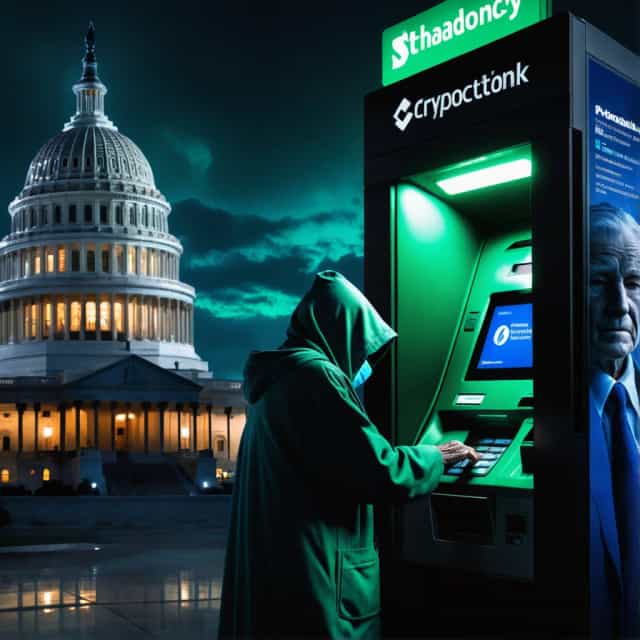
Image source: Block Media
Diverging Trends in Bitcoin (BTC) and Ethereum (ETH) ETF Markets: Net Inflows vs. Outflows
The exchange-traded fund (ETF) market for Bitcoin (BTC) and Ethereum (ETH) is showcasing sharply contrasting capital flow dynamics. While Bitcoin ETFs are benefiting from significant net inflows, driven largely by institutional interest, Ethereum ETFs are grappling with consecutive sessions of net outflows. These opposing trends highlight changing market sentiment and strategic preferences among investors in the digital asset space.
Bitcoin ETFs Surge With Notable Net Inflows
Bitcoin ETFs have recently reclaimed investor confidence, reversing earlier outflow trends to post strong inflows. According to data from Passiv Investors dated October 24, BTC-focused ETFs collectively attracted net inflows amounting to $241 million, roughly equivalent to KRW 333.9 billion. This rebound in capital was led by substantial investments into BlackRock’s flagship product, the iShares Bitcoin Trust (IBIT), signaling positive market sentiment.
Breakdown of Major BTC ETF Contributions:
- BlackRock iShares Bitcoin Trust (IBIT): $128.9 million (approximately KRW 178.4 billion)
- Fidelity FBTC: $29.7 million (around KRW 41.2 billion)
- Bitwise BITB: $24.7 million (roughly KRW 34.2 billion)
- ARK Invest ARKB: $37.7 million (approximately KRW 52.2 billion)
- Grayscale Bitcoin Trust: $13.6 million
- VanEck HODL: $6.4 million (around KRW 9 billion)
What stands out is that no BTC ETF experienced outflows during this trading session, with several products maintaining flat performance, further solidifying the bullish sentiment in the Bitcoin ETF market.
Ethereum ETFs Face Extended Outflows
In sharp contrast, Ethereum ETFs have been marked by persistent capital outflows over three consecutive trading sessions. The ETF market for Ethereum recorded total net outflows of $79.4 million, roughly equivalent to KRW 110 billion, on October 24. Investors appear to be reducing their exposure to ETH ETFs, even in products managed by top-tier asset managers such as BlackRock and Fidelity.
Breakdown of Major ETH ETF Outflows:
- BlackRock ETHA: -$26.5 million (about -KRW 36.7 billion)
- Fidelity FETH: -$33.3 million (approximately -KRW 46.1 billion)
- Bitwise ETHW: -$4.5 million (roughly -KRW 6.2 billion)
- 21Shares TETH: -$6.2 million (around -KRW 8.6 billion)
- Grayscale Ethereum Trust: -$8.9 million (approximately -KRW 12.3 billion)
Notably, no Ethereum ETF reported net inflows during the observed period, leaving the market unable to recover from its recent trend of outflows.
Institutional Trends: Bitcoin vs. Ethereum Preferences
A market expert provided insight into these diverging trends, emphasizing that Bitcoin ETFs are outperforming across the board while Ethereum ETFs are encountering continuous outflows, particularly from high-profile products such as the BlackRock ETHA and Fidelity FETH. This divergence could indicate that institutional investors are leaning toward Bitcoin, recognizing its comparative market stability and potential for long-term value preservation.
“BTC ETFs showcase consistent inflows across products managed by various asset managers, signaling robust demand from institutional players,” the expert noted. “Conversely, the outflows in ETH ETFs suggest a waning short-term appetite for Ethereum, possibly due to its relative volatility or the broader crypto market dynamics.”
Conclusion
The contrasting capital flows into Bitcoin and Ethereum ETFs underscore key market preferences shaping the digital asset ecosystem. While Bitcoin continues to attract institutional capital as a perceived stable and reliable investment, Ethereum appears to face a more challenging market environment, with investors withdrawing funds even from top-performing products. Understanding these dynamics provides deeper insight into the evolving sentiment surrounding crypto investments and serves as a valuable indicator for broader market trends.
For real-time updates on the rapidly changing cryptocurrency landscape, follow Block Media via Google News or Telegram.










